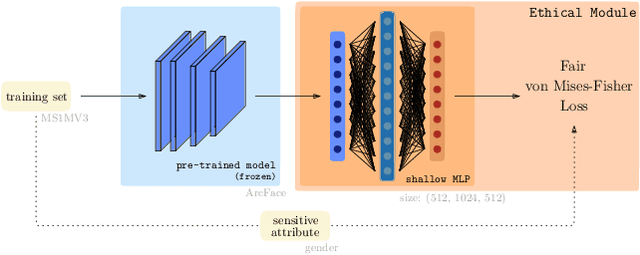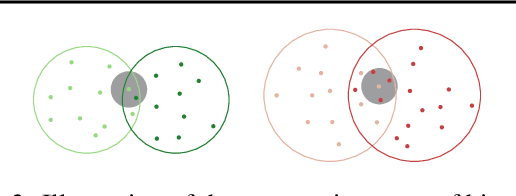Mitigating Gender Bias in Face Recognition Using the von Mises-Fisher Mixture Model
Paper and Code
Oct 24, 2022



In spite of the high performance and reliability of deep learning algorithms in a wide range of everyday applications, many investigations tend to show that a lot of models exhibit biases, discriminating against specific subgroups of the population (e.g. gender, ethnicity). This urges the practitioner to develop fair systems with a uniform/comparable performance across sensitive groups. In this work, we investigate the gender bias of deep Face Recognition networks. In order to measure this bias, we introduce two new metrics, $\mathrm{BFAR}$ and $\mathrm{BFRR}$, that better reflect the inherent deployment needs of Face Recognition systems. Motivated by geometric considerations, we mitigate gender bias through a new post-processing methodology which transforms the deep embeddings of a pre-trained model to give more representation power to discriminated subgroups. It consists in training a shallow neural network by minimizing a Fair von Mises-Fisher loss whose hyperparameters account for the intra-class variance of each gender. Interestingly, we empirically observe that these hyperparameters are correlated with our fairness metrics. In fact, extensive numerical experiments on a variety of datasets show that a careful selection significantly reduces gender bias.
 Add to Chrome
Add to Chrome Add to Firefox
Add to Firefox Add to Edge
Add to Edge